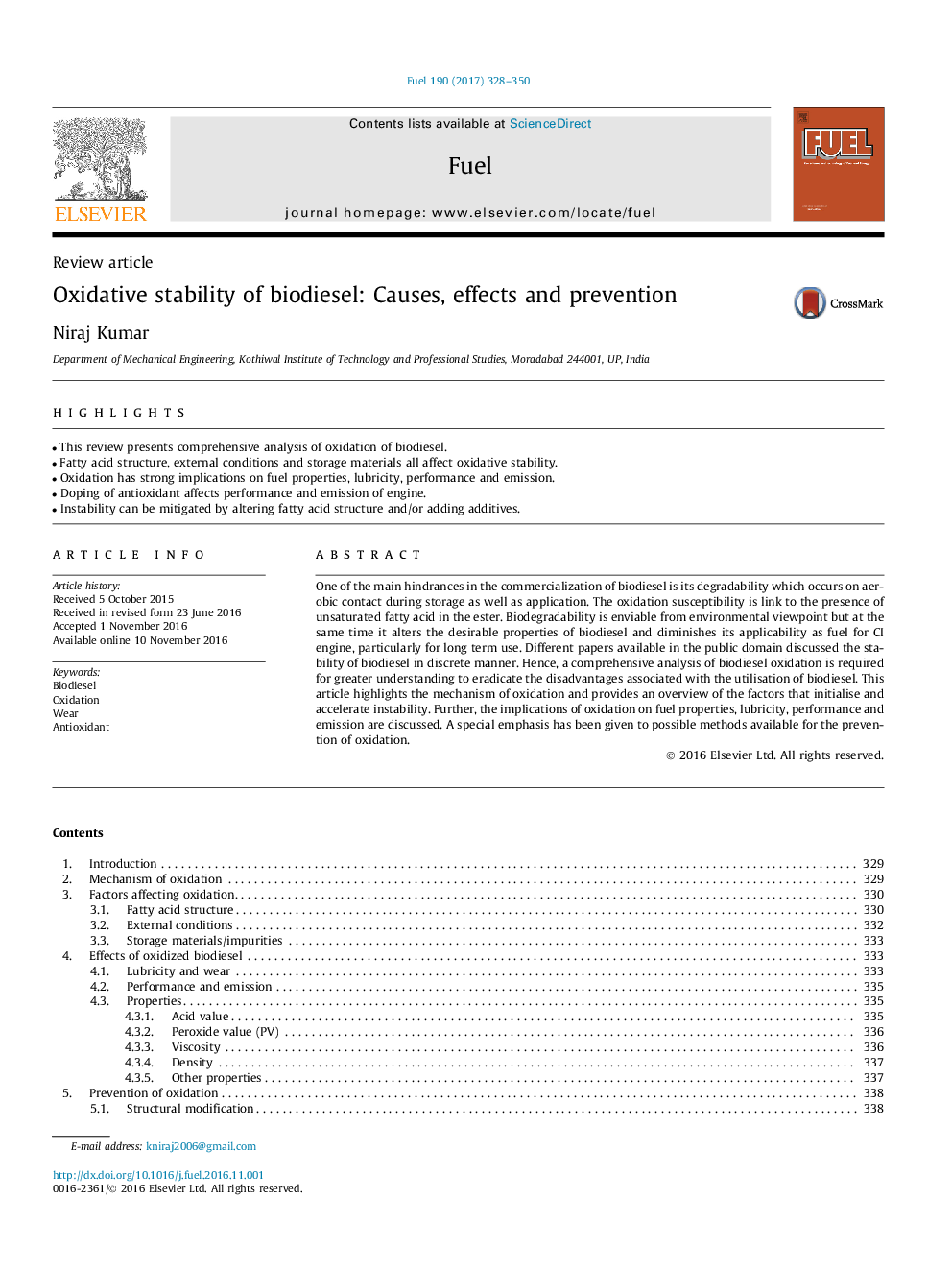| Article ID | Journal | Published Year | Pages | File Type |
|---|---|---|---|---|
| 6475535 | Fuel | 2017 | 23 Pages |
â¢This review presents comprehensive analysis of oxidation of biodiesel.â¢Fatty acid structure, external conditions and storage materials all affect oxidative stability.â¢Oxidation has strong implications on fuel properties, lubricity, performance and emission.â¢Doping of antioxidant affects performance and emission of engine.â¢Instability can be mitigated by altering fatty acid structure and/or adding additives.
One of the main hindrances in the commercialization of biodiesel is its degradability which occurs on aerobic contact during storage as well as application. The oxidation susceptibility is link to the presence of unsaturated fatty acid in the ester. Biodegradability is enviable from environmental viewpoint but at the same time it alters the desirable properties of biodiesel and diminishes its applicability as fuel for CI engine, particularly for long term use. Different papers available in the public domain discussed the stability of biodiesel in discrete manner. Hence, a comprehensive analysis of biodiesel oxidation is required for greater understanding to eradicate the disadvantages associated with the utilisation of biodiesel. This article highlights the mechanism of oxidation and provides an overview of the factors that initialise and accelerate instability. Further, the implications of oxidation on fuel properties, lubricity, performance and emission are discussed. A special emphasis has been given to possible methods available for the prevention of oxidation.
